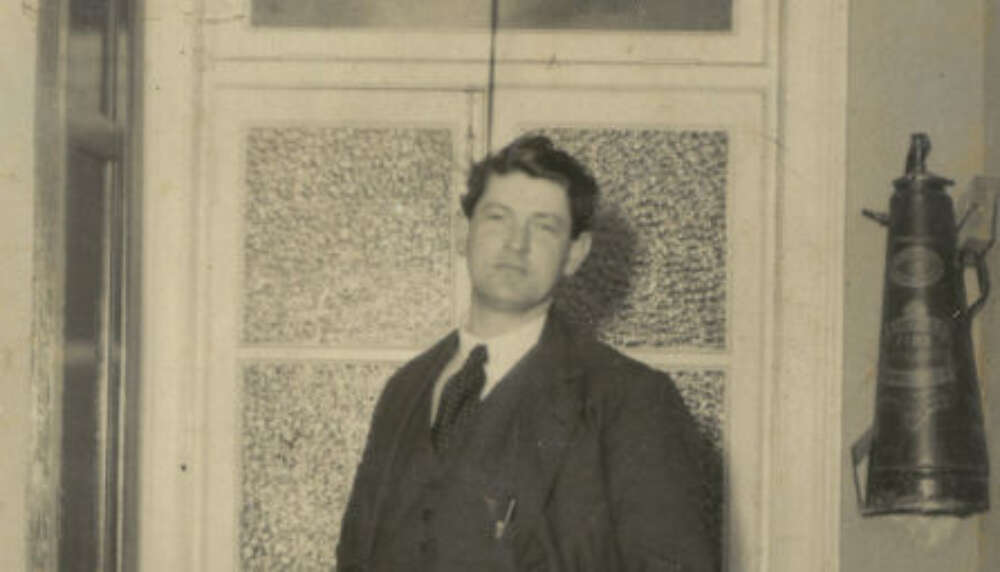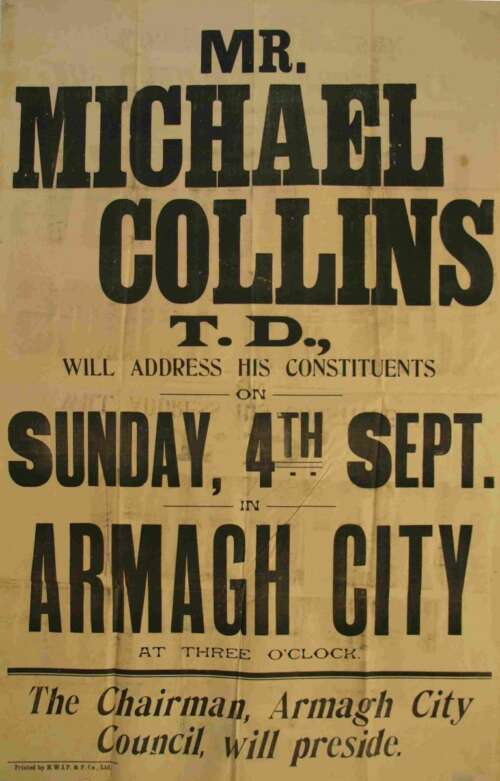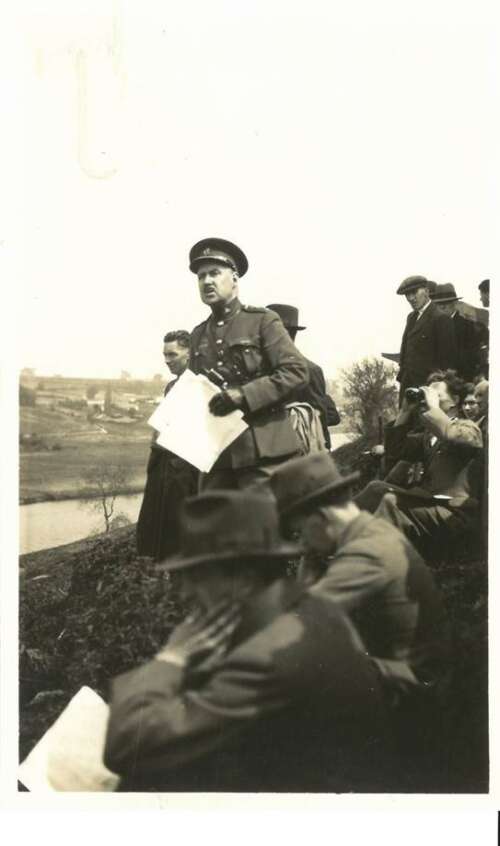The Collins Papers is one of the Military Archives’ most accessed and established archival collections.
The paperwork held in the Collins Papers was created during the period 1918 – early 1922. The paperwork contains communications (despatches and forms) between I.R.A. Brigade and Battalion Officers and predominately those holding appointments in General Headquarters including Michael Collins, Richard Mulcahy, Cathal Brugha and Gearoid O’Sullivan. The chief creator and recipient of most of the paperwork was General Michael Collins and the collection bears the title ‘The Collins Papers’ to signify that connection. The advent of the Collins Papers online presents new opportunities for a global audience to analyse the years preceding and encompassing the War of Independence and the tumultuous post Truce and Treaty period using the records created by I.R.A. leaders and General Headquarters staff.
Provenance and Scope
The Collins Papers owes its origins to the record creating activities of members of the Irish Republican Army (I.R.A.) and General Headquarters (G.H.Q.) staff. The paperwork held in the Collins Papers was created between 1918 and early 1922, taking in the War of Independence years (1919 – 1921) and tumultuous post Truce and Treaty period. The paperwork contains communications (despatches) between I.R.A. Brigade and Battalion Officers, (less frequently between rank and file members), and predominately those holding appointments in G.H.Q. including Michael Collins, Richard Mulcahy, Cathal Brugha and Gearoid O’Sullivan. The chief creator and recipient of most of the paperwork held in this collection was General Michael Collins. The collection, which has been in the custody of the Military Archives for decades, was named the ‘Collins Papers’ to signify that connection.
The Collins Papers totals 228 files and these files are linked to Michael Collins’ successive G.H.Q. appointments post the third Convention of the Irish Volunteers (19th November 1917). Collins held the appointment of Director of Organisation[i] initially and following that tenure, was appointed Adjutant General (a crossover with his replacement Gearoid O’Sullivan can be assumed) and finally, Director of Intelligence. Much of the later intelligence material (post Truce and Treaty period) held in the collection can be attributed to Collins’ intelligence deputies, Frank Thornton and Liam Tobin.


![CP-05-01-23: Communications between agent ‘100’, F [Frank Thornton] and L [Liam Tobin], 13th July 1921](https://www.militaryarchives.ie/uploads/images/_width500/CP_05_01_23-1-809x1024-1.jpg)

![CP_05_02_03: Despatch from INTEL [Intelligence Department, G.H.Q] to I/O [Intelligence Officer], Mid Limerick Brigade, 19th May 1921](https://www.militaryarchives.ie/uploads/images/_width500/CP_05_02_23-2-990x1024.jpg)
![CP_02_25: Adjutant [Michael Collins] to the Adjutant, Leitrim Brigade, 18th December 1919. Collins wrote this in response to a cheque received that was made payable to Jenny Mason, Collins’ confidential typist.](https://www.militaryarchives.ie/uploads/images/_width500/CP_02_25-2-946x1024.jpg)




